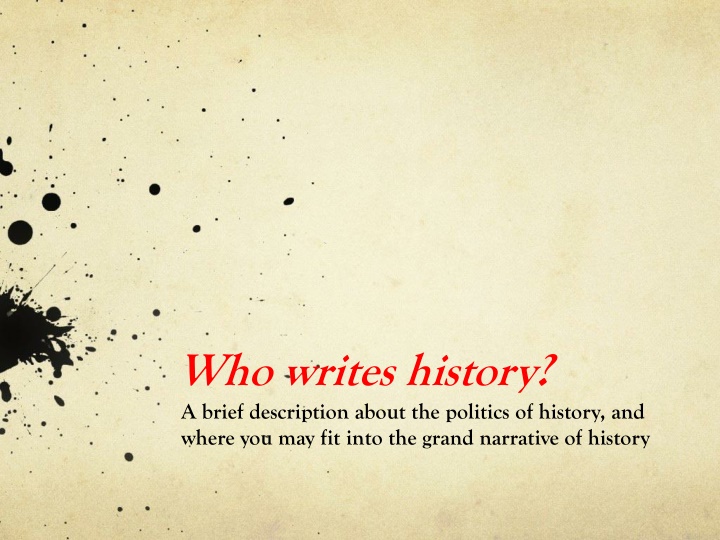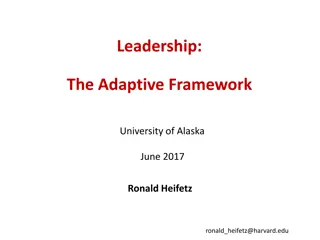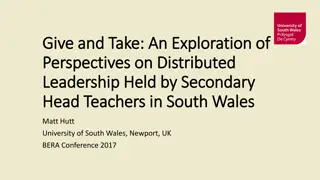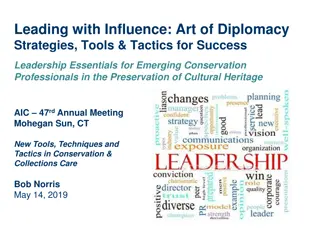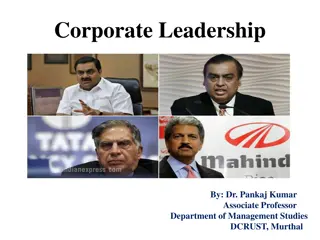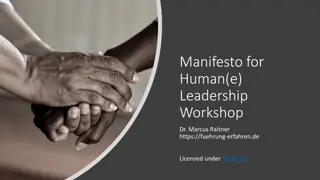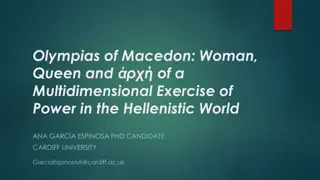Perspectives on History, Power, and Leadership
Explore the interconnected realms of history, power dynamics, and leadership through thought-provoking discussions on who writes history, the significance of diverse perspectives, and the defining traits of effective leadership. Reflect on the role of knowledge as a form of power, the impact of point of view in storytelling, and the social responsibility of historians in shaping our understanding of the past.
Download Presentation

Please find below an Image/Link to download the presentation.
The content on the website is provided AS IS for your information and personal use only. It may not be sold, licensed, or shared on other websites without obtaining consent from the author.If you encounter any issues during the download, it is possible that the publisher has removed the file from their server.
You are allowed to download the files provided on this website for personal or commercial use, subject to the condition that they are used lawfully. All files are the property of their respective owners.
The content on the website is provided AS IS for your information and personal use only. It may not be sold, licensed, or shared on other websites without obtaining consent from the author.
E N D
Presentation Transcript
Who writes history? A brief description about the politics of history, and where you may fit into the grand narrative of history
Lets discuss history A form of story telling created by humans Everyday decisions are made in the vortex of competing demands Reflects cultural, social, economic conditions Life is a dynamic, conflict ridden, happy series of events A complex story that can illuminate or obscure, even obliterate events Power is a force that can be wielded for a wide range of purposes
Lets discuss power Enact or rescind laws of the land Compel people into action Protect (or harm) classes of living beings Confer legitimacy Make decisions that effect people s daily lives Issue (or deny) authority
How might we define leadership? Communicate ideas Understand the complex qualities that comprise the human condition Articulate a vision and Organize individuals and groups Utilize that understanding to bring people together Identify problems and offer strategies
Knowledge is a form of power Acquisition of letters Desire to advance human well-being Ability to question Passion for learning Opportunity to frame Provide a foundation for future inquiry Capacity for debate / argumentation Contribute to the legacy of democratic intellectual action Comfort in one s information base
The importance of POV Understanding a writer s / researcher s / teacher s Point of View is critical to ascertaining its veracity / accuracy / relevance Identifying the circumstances that inform a historian s POV enables readers to understand how particular emphases have evolved in the history being told Looking at our POV as readers permits us to understand the values / interests / importance that we place on certain stories and subjects
Consider these ideas Historians have a social responsibility Illuminate positive and negative outcomes of the past Create works that are useful in solving contemporary social issues Offer alternative and/or new approaches to understanding current conditions Provide a framework for understanding linkages to the past Historical evidence is the basis for informed decision making
Ponder this Why is history telling useful? Can or should historians be objective ? Is it possible for us to create history that speaks to a wide range of events, processes, and subjects?
